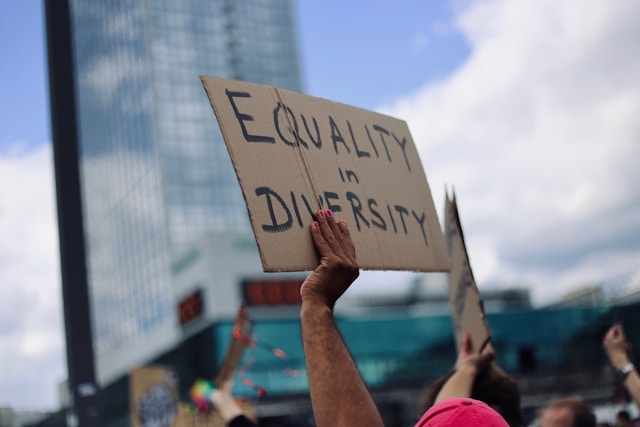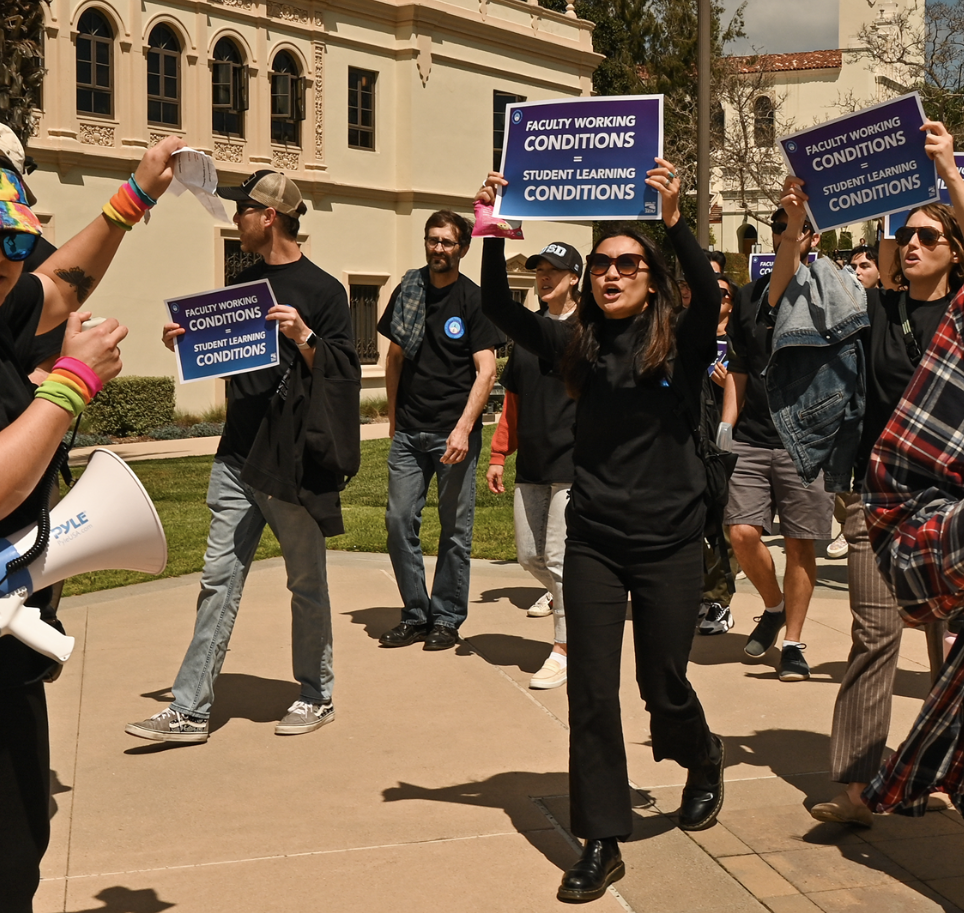Emma Pirhala / Asst. News Editor
In some states across the country, public universities face an incoming ban on diversity, equity and inclusion (DEI) efforts. A bill passed in the Texas state legislature banning the implementation of DEI initiatives in its public universities caused 60 faculty members at The University of Texas at Austin to be released from their positions, reportedly two weeks ago. This event is the latest in an ongoing effort by some states to ban DEI from their universities’ campuses.
Previously, Florida and Utah passed bans and more than 30 states have introduced a bill doing so. Supporters of the ban believe that DEI offices promote “white guilt,” a term describing the practice of shaming white students for the past actions of other white people, and exert unfair political influence upon students. Supporters of the ban say that DEI funds should be diverted to other academic or extracurricular programs. Those opposing the ban credit DEI initiatives with encouraging equal opportunities for all students and opening up conversations about injustice and prejudice.
USD first-year Emily Salvador expressed her opinion on why DEI should remain at other colleges.
“As someone who is first-generation, I think that it is really important for universities to have diversity resources so that students can feel included and have a comfortable space. It is important for students to have equal access to opportunities because the system isn’t set up equally.”
USD first-year Nico Mosley also shared similar sentiments.
“I think it is pretty insane that [The University of Texas at Austin] is able to do that, since DEI is something that is really important in our education system and provides opportunities for people of different races and cultures.”
Despite such attempts throughout the country, USD remains committed to their DEI initiatives, such as the Center for Diversity and Inclusion (CID), the Multicultural Commons, LGBTQ+ Commons and the Kumeyaay Tribal Liaison.
Written on the CID’s website, USD Vice Provost for Diversity, Equity and Inclusion Dr. Regina Dixon-Reeves stated the importance of DEI at USD.
“We want to feel safe to be our authentic selves and we want access to opportunities and experiences that can be used to ultimately change the world. That’s how we want people to feel when they come to the University of San Diego.”
Vice President of Mission Integration at USD, Dr. Michael Lovette-Colyer explained the relationship between the University’s mission and DEI initiatives.
“One of the values at the very foundation of Catholicism is human dignity. As a Catholic university, our conviction that all people are created in the image and likeness of God and thus possess infinite dignity and worth grounds and motivates our efforts to ensure that all members of our community know they are cherished and celebrated. The diversity, inclusion and equity efforts on campus are designed to promote a sense of belonging as well as the thriving of all students, faculty and staff.”
USD’s mission aligns with Catholic social teachings of human dignity, which promotes the ability to thrive amongst all individuals, regardless of race, gender and religious affiliation.
In some areas of campus, names have changed to reflect the significance and influence of Native American communities, such as the Kumeyaay Nation, in San Diego. For example, Mata’yuum Crossroads, formerly known as Missions Crossroads, was renamed in 2019 for the Kumeyaay Nation’s word for “gathering place.”
However, some students believe that USD’s mission statement may be more performative than practiced.
The name of “Saints Hall” has remained controversial since the building’s renaming in 2019, changing from “Serra Hall” to “Saints Tekakwitha and Serra Hall.”
USD first-year Ivy Mendez finds the title of Saints Tekakwitha and Serra Hall contradictory.
“I see the name Saints Tekakwitha and Serra hall to be contradictory, because USD is attempting to honor the indigenous community by putting Tekakwitha’s name on the building. However, by leaving Serra’s name on there it takes away any of that honor. Serra committed horrible atrocities to [indigenous communities], and by having both their names on the building it seems to say that they deserve the same amount of honor and remembrance,” Mendez stated.
“While I appreciate the work that USD is doing to be more equitable and inclusive, I believe that there is much work that needs to be done when reflecting on harmful Catholic practices that may deter the [DEI] efforts we are deciding to implement on campus,” Mendez expressed.
USD has stated that it remains committed to DEI programs and initiatives, because it plays a vital role in campus life and culture. However, students, faculty and staff at other institutions across the country — like The University of Texas at Austin — are learning how to manage the new environment brought upon by the banning of DEI at their respective universities.
Photo courtesy of amyames/Unsplash





Leave a comment